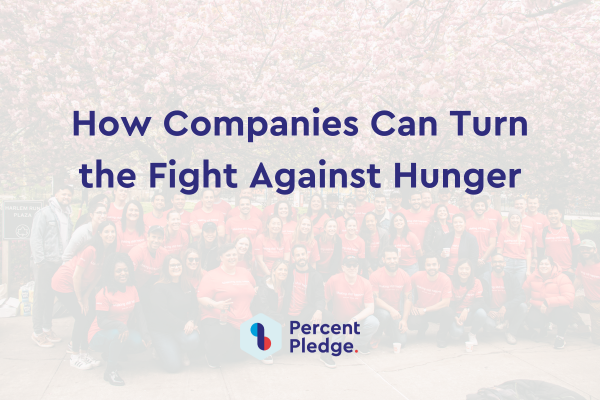This post was written following an interview with 3 time Chief People Officer Chris Galy. It is the first in a series of posts based on my interview with him.
In today's competitive business environment, HR/People teams are under pressure to do more with less. With limited budgets, and competing priorities it can be difficult to find ways to invest in employee engagement, recruitment & retention, learning & development, and employer brand. Plus teams rarely get funding for all the programs they request and are still expected to deliver maximum results.
Implementing programs that contribute to multiple priorities is key to meeting the demands on a modern HR team. CSR programs make a big impact with a small investment. CSR, or corporate social responsibility, refers to a company's commitment to making a positive impact on society. This can include things like donating to charity, volunteering, or promoting sustainability. A CSR program checks off employee engagement, recruitment and retention, learning and development, and improving employer brands:
Drive employee engagement:
Studies have shown that employees are more likely to be engaged and productive when they feel like their work is making a difference in the world. CSR programs can help employees feel connected to their company and its mission.
Increase talent acquisition and retention:
In today's job market, top talent is in high demand. CSR programs can help companies stand out from the competition and attract the best and brightest employees.
Improve employer brand and reputation:
CSR programs can help companies build a positive reputation with customers, investors, and the community. This can lead to increased sales, investment, and goodwill.
Support professional development:
CSR programs provide employees opportunities to learn new skills and hone their existing skills. Upskilling employees leads to better efficiency and effectiveness of your workforce.
Boost team bonding:
CSR programs provide employees opportunities to bond over causes they care about, plus volunteering in person gives employees an opportunity to solve new problems together, deepening their relationships and abilities.
CSR programs don't have to be expensive to be effective. Even small investments can make a big difference. For example, a company could donate a portion of its profits to charity, match employee donations, or volunteer its employees' time to a local cause.
If you're looking for a way to invest your HR budget that will improve employee engagement, retention, and productivity, CSR programs are a great option. They're a win-win for both your employees and your company.
The benefits of CSR programs are well researched:
Employee engagement: A study by Cone Communications found that 70% of employees are more likely to stay with a company that supports a cause they care about.
Employee productivity: A study by the University of Pennsylvania found that employees who volunteer are more likely to be engaged and productive at work.
Company reputation: A study by the Reputation Institute found that companies with strong CSR programs have a 20% higher customer loyalty rate than companies with weak CSR programs.
Learning and development: In Percent Pledge passion assessments we found that 88% of employees believe giving programs are an opportunity for learning and development.
CSR programs are a great way for HR teams to make a positive impact on the world. With a little planning and effort, you can create a CSR program that will benefit your employees, your company, and the community.




